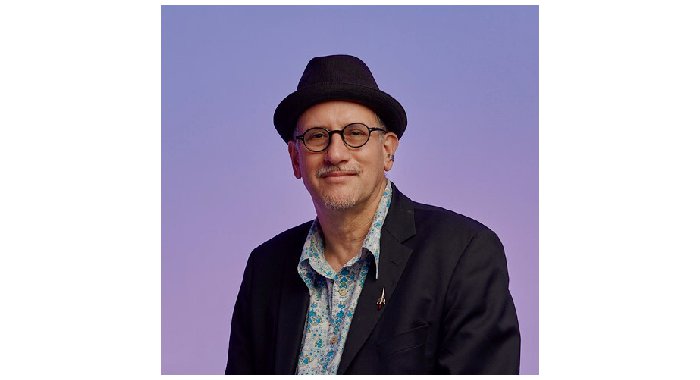
July 17, 2023
Program News
A NASA Astrobiology Community Update from the Directors of the Divisions of Astrophysics and Planetary Science
Dear Colleagues,
In December 2022, the Science Mission Directorate (SMD) announced a NASA Excepted (NEX) job opportunity for a qualified individual to fill the position of Senior Scientist for Astrobiology. The incumbent will serve as the Agency’s senior leader for astrobiology, spearheading efforts from NASA Headquarters to ensure significant progress is made in the field.
After intense consideration of an impressive pool of well-qualified candidates the divisions most closely associated with astrobiology, Astrophysics and Planetary Science Divisions, are thrilled to announce that Dr. David Grinspoon has been named to this position. Moving forward, Dr. Grinspoon’s working job title will be Senior Scientist for Astrobiology Strategy (SSAS). He brings a compelling vision for growing interdisciplinary collaboration, for assuring integrity of astrobiology science on NASA flight missions, and for communicating the excitement of astrobiology inside and outside the Agency.

Dr. David Grinspoon will be Senior Scientist for Astrobiology Strategy (SSAS) at NASA.Image credit: Damian Siqueiros.
Dr. Grinspoon will officially join our team on July 31, but he is no stranger to NASA science, and is an esteemed member of the astrobiology community. Dr. Grinspoon has been a frequent advisor to NASA on space exploration strategy, a long-time investigator for NASA-funded programs, and a science team member on several active interplanetary spacecraft missions.
Dr. Grinspoon has participated in numerous NASA-related strategic planning and advisory roles, including serving for many years on the Solar System Exploration Subcommittee of the Solar System Advisory Committee for the Space Telescope Science Institute, on mission Science Definition Teams, and multiple Decadal Surveys. He is also currently serving on the Unidentified Anomalous Phenomena Independent Study Team.
Dr. Grinspoon’s technical papers have been published in Nature, Science, and numerous other journals. As a prolific science communicator, he frequently gives talks to all levels of audiences around the world. Dr. Grinspoon has received awards for his innovative ways of teaching astrobiology to both undergraduates and graduates at multiple universities.
While we are excited about Dr. David Grinspoon joining our SMD team, we are equally thrilled to share that Dr. Mary Voytek will be transitioning to a high-priority detail opportunity at NASA’s Ames Research Center for two years. Dr. Voytek will serve as the Acting Exobiology Branch Chief, supervising and managing branch operations essential for ensuring high-quality research and technology development.

Dr. Mary Voytek, Senior Scientist for Astrobiology at NASA, will serve as the Acting Exobiology Branch Chief at NASA’s Ames Research Center.Image credit: Mike Toillon.
Ames is a leader in astrobiology for NASA, and Ames scientists have been studying the origin, evolution, distribution and future of life in the universe for decades. In her new role, Dr. Voytek will bring new expertise and experience to Ames that will be instrumental for implementation of new astrobiology efforts at Ames, responding directly to the Decadal Survey(s).
As a key member of the division leadership team and division chief, Dr. Voytek will help ensure strategic coordination of research and technology development programs within the Space Science (ST) Division at Ames. She will also work collaboratively across the ST division and with other NASA Centers to help ensure that NASA is meeting its ambitious goals for astrobiology.
Dr. Voytek has been at the forefront of adapting strategies to support astrobiology research at NASA in addressing some of the most innovative and groundbreaking advances in this rapidly progressing field. She, spearheaded advancements like the Research Coordination Networks, which have cultivated further opportunities for collaboration across the many scientific disciplines required to answer outstanding questions in astrobiology.
Dr. Voytek has received numerous science awards, including the American Geophysical Union’s (AGU) 2022 Ambassador Award. Presented annually, the award is AGU’s highest honor, recognizing “outstanding contributions to one or more of the following areas: societal impact, service to the Earth and space community, scientific leadership, and promotion of talent/career pool.” In addition, the award “honors individuals whose achievements extend beyond those recognized by traditional scientific discipline awards.”
We are excited to see Dr. David Grinspoon and Dr. Mary Voytek grow NASA’s Astrobiology research and work to new, exciting levels across the entire Science Mission Directorate
Sincerely,
Lori S. Glaze, Director NASA Planetary Science Division, Email: lori.s.glaze@nasa.gov
And
Mark Clampin, Director, NASA Astrophysics Division, Email: mark.clampin-1@nasa.gov